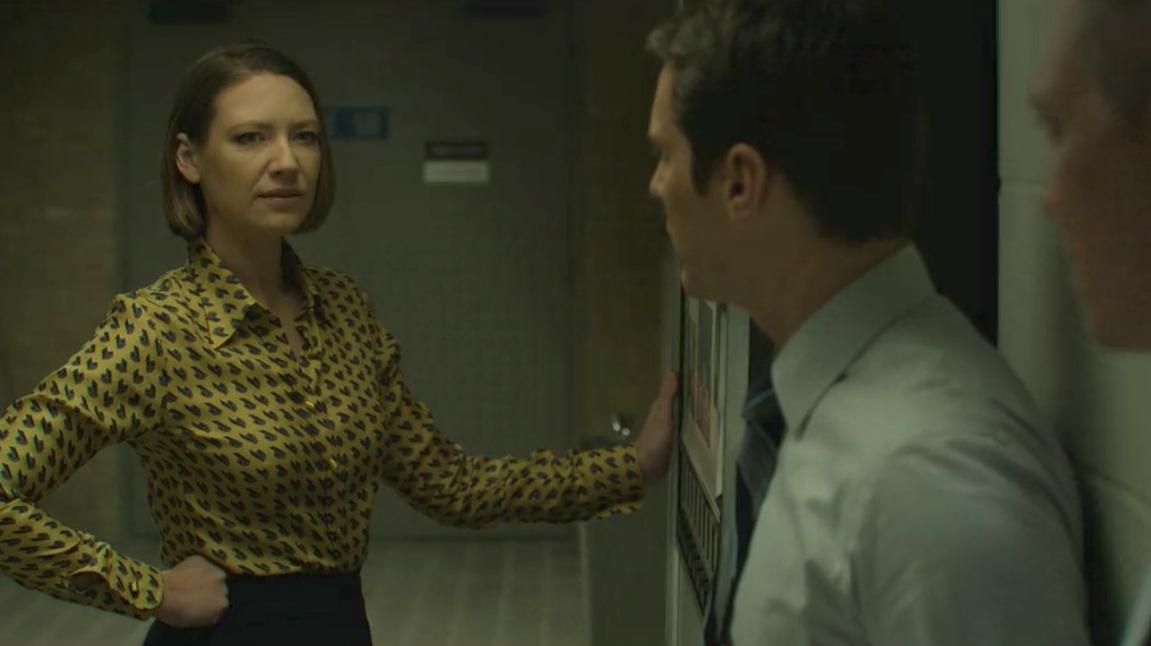Mindhunter full season 1 review: A smart, confident show as methodical as its protagonists
The David Fincher-produced and directed series is a late addition to the best new shows of 2017 list

Your support helps us to tell the story
From reproductive rights to climate change to Big Tech, The Independent is on the ground when the story is developing. Whether it's investigating the financials of Elon Musk's pro-Trump PAC or producing our latest documentary, 'The A Word', which shines a light on the American women fighting for reproductive rights, we know how important it is to parse out the facts from the messaging.
At such a critical moment in US history, we need reporters on the ground. Your donation allows us to keep sending journalists to speak to both sides of the story.
The Independent is trusted by Americans across the entire political spectrum. And unlike many other quality news outlets, we choose not to lock Americans out of our reporting and analysis with paywalls. We believe quality journalism should be available to everyone, paid for by those who can afford it.
Your support makes all the difference.After reviewing the first two episodes of new Netflix chiller (a genre I just made up) Mindhunter, I'd definitely hit that sweet 'sufficiently gripping' mark that made me immediately want to binge the rest. A brief trip to Tennessee the following weekend meant stretches of time on planes, on coaches and in hotel rooms; the kind of voids you'll fill with five offline-moded back-to-back episodes, and that's exactly what I did with great pleasure.
The binge allure of Mindhunter is interesting because there aren't really any big cliffhangers episode to episode, nor is there a sense that the season is heading towards a major climax or twist. Instead, the pleasure in the series is in its slow, systematic approach, as special agents Holden Ford and Bill Tench work up a methodology for understanding murderers out of nothing and constantly tweak it. There's a laboratory feel to the show - a sense of test tubes being poured incrementally into each other - only the chemicals the pair are playing with are America's most dangerous and deranged serial killers.
"This the most male show ever," was a fair criticism interjected by my housemate who had seen the first three episodes, but she would later exonerate the show after Dr. Wendy Carr entered the mix, a psychologist played to perfection by Anna Torv (not Carrie Coon as a ton of viewers including myself initially thought - seriously, it's uncanny, Coon had to respond). In less deft hands, this trio - Carr, Tench, Ford - could have fallen into tropes: the overly theoretical academic, the soul weary older detective and the precocious young renegade, but even though these are indeed broadly fair assessments of the characters, they're positioned so close together that a really subtle interaction between them is produced. Sure, Tench leans towards doing thing by the book and giving criminals' short shrift, but he's also very smart and thoughtful. Yes, Carr is a principled woman, but she quickly adapts to the ethics of the bureau vs. the university and doesn't just serve to rein them in. The same tempering is at play with Ford, that is, until the final episode when his arrogance and self-righteousness starts to breach believability.
Compared to a show like House of Cards, where the protagonist became president within two seasons, Mindhunter is glacial, aiming to reflect how slow change in law and policing can be as The Wire did before it. It also gleefully pre-empts a potential salacious affair storyline, having Ford lust after the new-to-town teacher figure, Carr, only to swiftly reveal she is lesbian and remove the possibility of some kind of tryst betwen them.
It doesn't rely on sex or sexual tension, then, nor does it capitalise, as you might expect it to, on gore. Mindhunter details some of the most inventively nasty things humans have ever done to each other and yet never once turns to a flashback, preferring to have each killer interviewed blankly recount what happened, somehow making the murderers seem all the more upsetting and real.
When season 1 wraps up, the pieces are only just on the chessboard and only a couple of moves have been made, setting us up for an intellectually intriguing battle of minds in future seasons.
Join our commenting forum
Join thought-provoking conversations, follow other Independent readers and see their replies
Comments